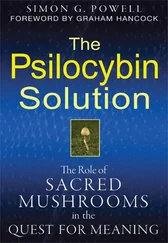“What if there was something inherently counterproductive about it? I’ll give you an example. Perhaps very early man was a loner, rather than tribal, and perhaps this early man could read minds. In such a situation, I can see how the ability would be quite beneficial and there would be very little, if any, downside. Any other human being he or she encountered would be a territorial threat. Reading the mind of the other to know what was planned would be an obvious positive. The better at it the individual was, the higher the probability would be to vanquish the other and survive.
“But as man evolved and it became obvious that there were numerous benefits to banding together and forming primitive societies, the invasiveness of telepathy might have hindered that direction, might have suddenly become a detriment. Every time a fellow tribesman lusted after another’s wife, there would have been conflict and strife within the group. Every time one felt envious of another’s cave or tree or food stock, there would have been problems and mistrust. I think that tribal life would have created a need to take the other members at face value, to rely upon what they decided to speak, rather than what they thought. It allowed, in a sense, humans to install a filter between their spontaneous thoughts and urges, and their deliberately spoken words and consciously thought-out deeds. Darwinian selection would have given the tribes without telepathy an advantage of social cohesion, which could have eventually dampened the ability to the point where it is now.
“In other words, maybe it’s been tried and the human race decided they didn’t like it. You could, in effect, be opening an old can of worms.”
Throughout Elias’ entire speech, Kreitzmann sat calmly, absorbing his words. With the final comment, he replied, “You could be right. I hadn’t considered that possibility. But" — he placed the palms of his hands flat upon the table — “it isn’t our purpose to second-guess. The point of our research is to uncover the buried or underdeveloped skills and bring those out. It will be up to them to retain or discard as they see fit.”
“Them?”
“The beneficiaries of our work.”
The discussion ended, Kreitzmann once again led Elias through a maze of interconnecting hallways. As they walked, the scientist, sounding more like a tour guide than an amoral monster, pointed out each of the labs they passed, and what work was being conducted in each.
“This is our computer interface lab. In this module, we are immersing subjects in computer code, rather than English.”
“What is your goal here?”
“Our goal with every one of our projects is the same. Just as a chemist creates compound after compound, testing each one until he finds a formula with the desired properties, we make no value judgment with regard to each possibility. We merely develop every conceivable skill which has the potential for benefiting from exemplarium immersion, and then we throw it into the mix. We only attempt to discover if a skill, ability, or talent is possible. Once that is done, it will be up to the group to retain or discard the newly uncovered ability.
“In this project, we are taking a different approach from the human/computer interface labs, as well as the artificial intelligence labs. They are all struggling to make computers adapt and comply with us. Where they continue to run afoul is with the sloppy nature of our thoughts and languages. The very nature of the computer is that it is logical and precise. Everything is black and white, on or off. With humans, everything is gray. Attempting to create a true bridge between them is not possible as long as those two facts are true. Computer engineers have gone further and further afield in an attempt to make computers more like us, with fuzzy logic and so on. We are approaching the same problem from the other side. Here, we are raising a group of subjects who know only the logical and precise language of the computer. They also live in an environment where only black-and-white, logical behavior and criteria in their day-to-day living are rewarded. Patrick, you will be astounded at the ability these subjects have to interface with the computers.”
“As you are doing in the telepathy lab, are you teaching them English once they have mastered code as their first language?”
“No need. There are a variety of off-the-shelf software programs that accomplish that for us.”
“Word processing?”
“Exactly. That is the beauty of humans communicating in code. With a viable human/computer interface, which we’ve already perfected, all that is needed is to open a word processing program, and we can talk directly to the subjects and they can answer. With text-to-speech programs, we can easily converse with them.”
“The interface? What type of terminal do you utilize?”
“Not a terminal. No keyboard. No mouse. The interface is direct.”
“Direct? Do you mean…?”
“Implants with connect/disconnect jacks. The subjects can plug in or unplug as they wish, although we’ve noticed that their desire to unplug is quite rare.”
They had walked well past the computer interface lab. The door had been closed, so Elias’ mind, without benefit of a glimpse inside, was free to run rampant, creating a surreal scene of these young children with shaved heads and USB ports embedded in their skulls, wires dangling. He felt, once again, the surge of adrenalin which would normally be the precursor to a violent physical attack on Kreitzmann. With a monumental exertion of will power, Elias tamped down his furor and continued walking beside this soulless being masquerading as a man.
“We just passed the strength enhancement lab, and coming up on the right is our math/physics lab.”
The door to the room Kreitzmann called the strength lab was closed, but the math/physics lab was open, and Elias cautiously peered in, afraid of what bizarre tableau he might witness. He was relieved to see only a normal classroom, filled with desks which were occupied by children who all appeared to be no older than first- or second-graders. In the front of the room were two teachers, both standing by dry-erase boards filled with complex equations. As he passed, he noticed something odd.
“Both teachers were talking at once,” Elias remarked.
“Yes. One of the human abilities we accidentally discovered along our path is that the human mind, if exposed to the technique from the very beginning, can easily absorb and comprehend two separate inputs at once.”
“Unbelievable!”
“Ah, here we are. The speech lab.”
Elias followed Kreitzmann into the room. Immediately, one of the staff stood up and hurried to greet them.
“Doctor Boehn, this is Doctor Brightman.”
“Patrick Brightman? My God, a pleasure to meet you, sir.”
This lab was staffed with approximately fifteen people, most of whom were seated at terminals, paying no attention to the visitors.
Boehn, a lean man, wearing what appeared to be the mandatory uniform of Kreitzmann’s group, a white lab coat, and clutching an iPad instead of a clipboard, said excitedly, “I read many of your papers. I’ve never dreamed you would join us.”
He suddenly looked self-conscious. Glancing at Kreitzmann, he added, “I mean, here in Aegis.”
“It’s my pleasure, Doctor Boehn.”
“Doctor Boehn heads up our linguistics enhancement team.”
“Linguistics enhancement? Are you exploring the multilingual capabilities of the subject?”
With a quick darting of his eyes to glance at Kreitzmann, Boehn replied, “No, not multilingual abilities. We actually enhance the fundamental speaking and comprehension-through-hearing abilities of the subjects.”
Читать дальше












